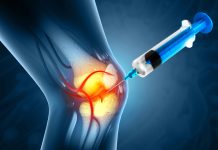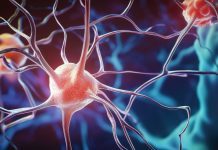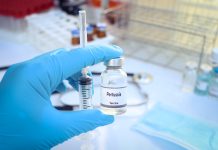The University of Oxford has launched a £118m AI vaccine research programme, CoI-AI, with the Ellison Institute, aiming to combat antibiotic resistance through human challenge trials
A new initiative, led by Oxford Vaccine Group, named CoI-AI (Correlates of Immunity-Artificial Intelligence), will combine Oxford’s expertise in human challenge studies, immune science, and vaccine development with the Ellison Institute of Technology (EIT)’s Artificial Intelligence (AI) technology. The Ellison Institute will provide its advanced AI technology to the initiative, enhancing our understanding of infections and how vaccines protect us.
CoI-AI programme: Combining human challenge trials and artificial intelligence
The CoI-AI programme will focus on how the immune system responds to germs that cause serious infections and contribute to antibiotic resistance, such as Streptococcus pneumoniae, Staphylococcus aureus, and E. coli. Researchers will utilise human challenge models, where volunteers are safely exposed to bacteria under controlled conditions, and apply modern immunology and AI tools to pinpoint the immune responses that predict protection.
The CoI-AI programme, established in December 2024 through a strategic alliance between the University of Oxford and EIT, aims to develop solutions and create future leaders needed to tackle some of the most significant and challenging challenges facing humanity, thereby significantly impacting the global health landscape.
EIT is renowned for its groundbreaking research and commercial capabilities, driving scientific discoveries and fostering sustainable and ethical companies. The Ellison Institute combines cross-cutting capabilities and expertise in generative biology, clinical medicine, plant science, sustainable energy, public policy, and other related fields. The research is supported by substantial computing capability enabled by Oracle, a world-class Artificial Intelligence team, and a Scholars programme which aims to help the world’s finest up-and-coming scientists.
Tackling urgent problems in infectious diseases
Professor Sir Andrew Pollard, Director of the Oxford Vaccine Group, said: “This programme addresses one of the most urgent problems in infectious disease by helping us to understand immunity more deeply to develop innovative vaccines against deadly diseases that have so far evaded our attempts at prevention. By combining advanced immunology with artificial intelligence and utilising human challenge models to study diseases, CoI-AI will provide the tools necessary to tackle serious infections and mitigate the growing threat of antibiotic resistance. This is a new frontier in vaccine science.”
Professor Daniela Ferreira, Deputy Director of the Oxford Vaccine Group, said: “This programme will give us completely new tools to study how vaccines work at both a cellular and system-wide level, by studying infections in real time, in people, and using smart immunology tools and data to find the answers. This will open up whole new avenues to vaccine design as we improve our understanding of infection and immunity.”
Larry Ellison, Chairman of the Ellison Institute of Technology, said: “Researchers in the CoI-AI programme will use Artificial Intelligence models developed at EIT to identify and better understand the immune responses that predict protection. This vaccine development programme combines Oxford’s leadership in immunology and human challenge models with cutting-edge AI, laying the groundwork for a new era of vaccine discovery – one that is faster, smarter, and better able to respond to infectious disease outbreaks throughout the world.”
Professor Irene Tracey, Vice-Chancellor of the University of Oxford, said: “This is a major step forward in our strategic alliance with the Ellison Institute. Together, we’re combining Oxford’s strengths in vaccine science with EIT’s bold vision to tackle some of the toughest problems in global health. This is about drawing more talent and capacity to the Oxford ecosystem to turn scientific challenges into real solutions for the world.”











